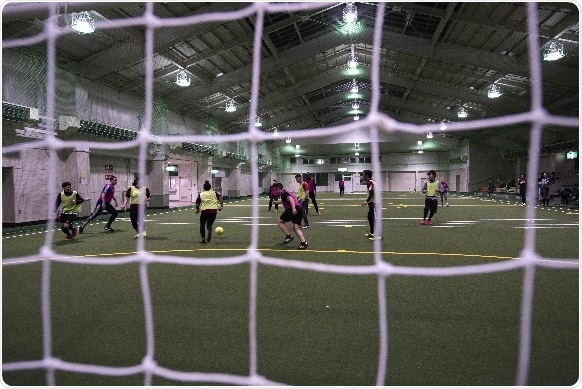
Gender-sensitized lifestyle programs increase physical activity of European men
Gender-sensitized lifestyle programs delivered in professional football clubs have shown promise in increasing physical activity in Europe and could play an important public health role in engaging underserved men, according to a study published February 5 in the open-access journal PLOS Medicine by Sally Wyke of the University of Glasgow, and colleagues. The findings add to previous evidence that suggests engaging men in physical activity through programs that work with existing constructs of masculinity is a promising route for promoting men’s health.

Credit: Staff Sgt Melanie Hutto, U.S. Air Force
Gender-sensitized lifestyle-change programs in a professional sport setting are an exciting development in men’s health promotion, with the potential to engage men who are underserved by most programs. One such program, Football Fans in Training (FFIT), has been shown to be effective and cost-effective in delivering long-term weight loss in overweight and obese Scottish football fans. Drawing on the success of FFIT, Wyke and colleagues developed the European Fans in Training (EuroFIT) program to attempt to improve physical activity and sedentary time in male football fans. EuroFIT is a 12-week group-based program delivered by coaches at football clubs in weekly 90-minute sessions. Whereas FFIT introduced physical activity and dietary change for weight loss, EuroFIT focused on increasing physical activity and reducing sedentary time as desirable outcomes in their own right.
The authors conducted a randomized controlled trial that included 1,113 men aged 30–65 years in 15 football clubs in England, the Netherlands, Norway, and Portugal. Compared to the control group randomly assigned to the waiting list, participants in the EuroFIT program showed improved physical activity (678 additional steps/day) but not sedentary time 12 months after baseline. EuroFIT participants also showed improvements in diet, body weight, indicators of cardiometabolic health, well-being and self-esteem. According to the authors, combining lessons learned from EuroFIT and its predecessor FFIT will allow the further refinement of evidence- and theory-based lifestyle-change programs delivered in professional sports settings.
Source:





















.png)









No hay comentarios:
Publicar un comentario